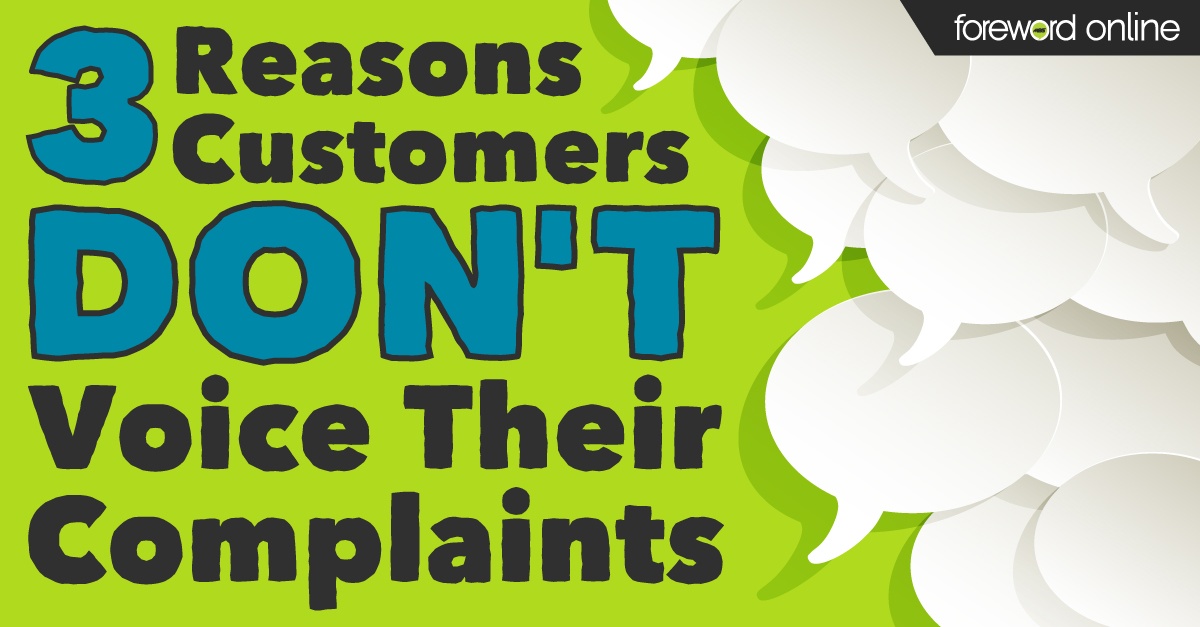Customer service can be tricky. You want to do everything in your power to make the customer’s experience with your business pleasant, but inevitably there will be times when someone has a bad encounter. If they tell you the issue, it can be resolved. Often, though, customers don’t give voice to the complaints. Unless there has been an egregious error, most customers will just walk away disappointed or angry, which leads to a loss of customers and revenue to the store.
 Only 4% of unhappy customers complain to the store about their experience. However, those same people will tell 9–15 others about their disappointment. With the addition of social media, that number can go up — way up. Even worse, 91% of the unhappy customers will never return to your store. Those customers simply disappear without giving the store a chance to correct the issue.
Only 4% of unhappy customers complain to the store about their experience. However, those same people will tell 9–15 others about their disappointment. With the addition of social media, that number can go up — way up. Even worse, 91% of the unhappy customers will never return to your store. Those customers simply disappear without giving the store a chance to correct the issue.
How can this problem be addressed when people aren’t giving feedback? Identify the areas where the customer might be disconnecting. Below are three reasons a customer will choose not to complain.
- It won’t do any good
The buying experience is influential. Having staff who are polite, informed and engaged is essential to customer service. When an employee is upset or doesn’t want to be there, it reflects onto the customers who base 70% of experience satisfaction on how they feel they are treated. If an employee is disinterested in helping customers then why would they care about the customer’s complaint? Those people will leave your store with the impression your business doesn’t care about them, leaving a 91% chance of never coming back - The wrong person will get in trouble
There are a lot of reasons a customer might have a bad experience that may or may not be the fault of the individual who is helping them. Think about the restaurant industry. It could take an unreasonable amount of time to be served. Is that the waiter’s fault? Or could the kitchen be backed up or your order was missed. Complaining about the service falls onto the waiter who might not have control over the situation. College stores are criticized for the cost of course materials. While some customers blame the store, others will look for other retailers to fill their order rather than complaining about a lack of affordable options - It's a hassle
Maybe there is a line of people waiting behind the person who had a bad experience. Perhaps they don’t have time to wait for a manager. Or, the online experience with your website is so complicated they just get frustrated and quit. Simplifying the channels in which a customer can inform you of issues they encountered may help you turn around a bad experience. That may feel counter-intuitive — after all, you don’t want complaints. However, not receiving complaints because customers don’t have problems is far different from receiving no complaints because customers don’t want to be inconvenienced. If they aren’t talking because they fall into one of these categories, then there is a problem. Let’s say one week you received two customer complaints. How many people had that same complaint and didn’t tell you? For every customer complaint, there are 26 other unhappy customers. That means you have 52 unhappy customers who will then tell around 520 people they know about their experience
Customer service doesn’t have to be over the top. Friendly, knowledgeable service that simplifies the shopping experience is what people want. When customers ask for help, they want someone who can answer their questions in a respectful way.




